Table of Contents
Diving into keyword research 🕵️♂️ is more than just a routine task; it’s like embarking on an exciting quest to discover what really makes your audience tick. We’ve all been there, feeling a tad overwhelmed by the plethora of tools at our disposal 🌐. Questions might pop up – are you overlooking some hidden treasures that could catapult your website’s ranking?
🚀 Worry not! In our fresh-off-the-press article, ‘Top 10 SEO Keyword Research Tools of 2024: Uncover Hidden Gems for Your Website,’ we’ve meticulously combed through the digital realm to handpick the top 10 tools that blend power with user-friendliness 🛠️.
Tailored for both SEO wizards and beginners, this guide is set to reveal the secrets of masterful keyword research. It’s not just about finding the right keywords; it’s about unlocking a world where SEO is not just effective but also downright thrilling! 🎉 Get set for an enlightening journey that could be the game-changer for your website’s popularity!”
Criteria for Choosing the Best Keyword Research Tools
When diving into the sea of keyword research tools, several factors come into play. The aim is to find a tool that’s not just powerful but also user-friendly and cost-effective.
Key Considerations:
- Accuracy: The tool should provide reliable and up-to-date data.
- User Experience: It needs to be intuitive and easy to navigate.
- Data Insights: Look for depth in data analysis – the more detailed, the better.
- Cost-Effectiveness: The tool should offer good value for money.
Balancing these factors can be challenging, but it’s crucial for finding a tool that won’t just sit unused in your digital toolbox.
Tool #1: Google Keyword Planner
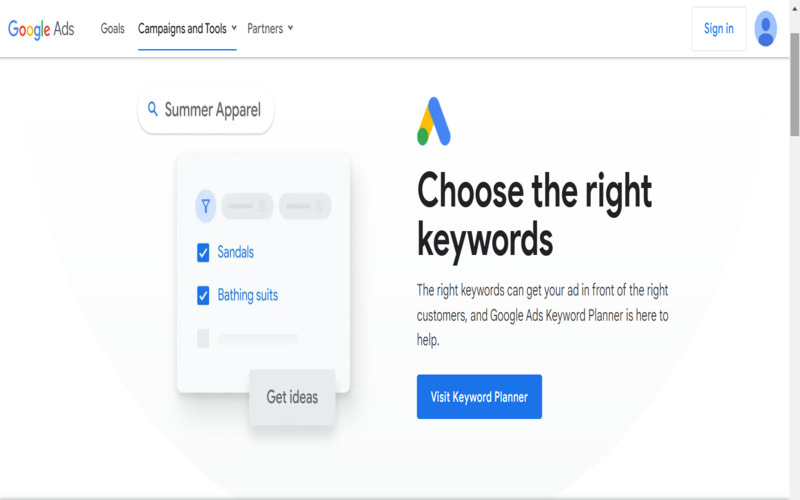
Overview: Google Keyword Planner is a classic, integrated into the Google Ads platform. It’s designed to help users find keywords for ad campaigns, but it’s equally useful for organic search analysis.
Key Features:
- Search volume and trends
- Competition level assessment
- CPC (Cost Per Click) estimates
Pros:
- Direct data from Google
- Free to use
Cons:
- Primarily focused on paid search
- May lack some advanced features
Ideal for: Beginners and small businesses focusing on Google Ads alongside organic search.
RECOMMENDED:
Tool #2: SEMrush
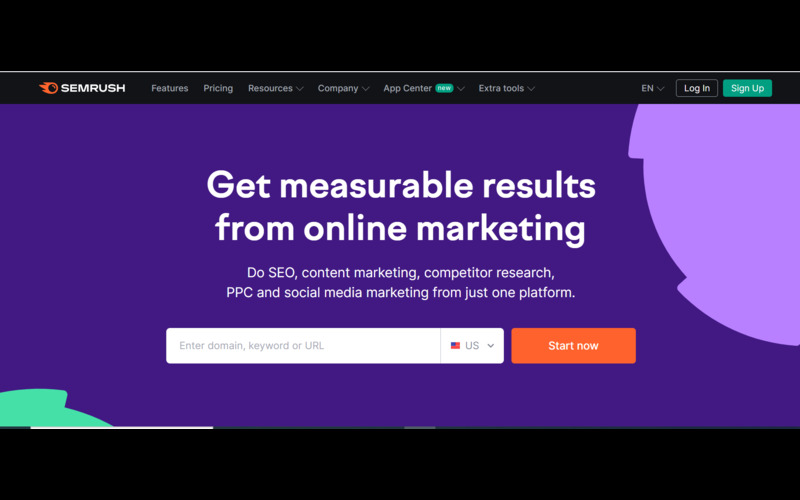
Overview: SEMrush is a comprehensive tool offering a wide range of features beyond keyword research, like site audits and competitor analysis.
Key Features:
- Keyword analytics
- SERP analysis
- Competitor keyword research
Pros:
- Extensive feature set
- Great for competitor analysis
Cons:
- Can be overwhelming for beginners
- Higher price point
Ideal User Profile: SEO professionals and businesses with a focus on in-depth research and competitive strategy.
Tool #3: Ahrefs

Overview: Known for its robust backlink analysis, Ahrefs also offers a powerful keyword research tool.
Key Features:
- Keyword difficulty score
- Advanced metrics like click-through rates
- Backlink data integration
Pros:
- Comprehensive data
- User-friendly interface
Cons:
- Pricier than some alternatives
- Might be complex for absolute beginners
Ideal User Profile: SEO specialists and content marketers looking for detailed insights and backlink data.
Tool #4: Moz Pro
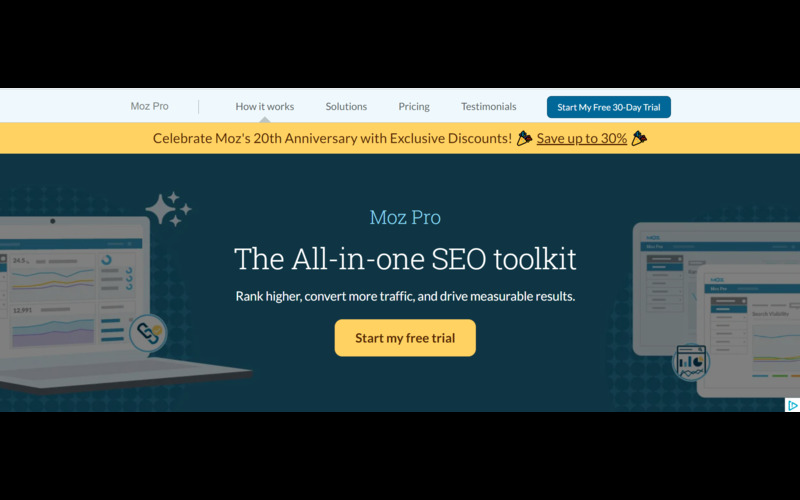
Overview: Moz Pro is an all-in-one SEO toolkit that includes a keyword research tool known for its Keyword Difficulty score and SERP analysis features.
Key Features:
- Keyword suggestions
- SERP analysis
- Keyword Difficulty score
Pros:
- User-friendly
- Includes a variety of SEO tools
Cons:
- Sometimes data may not be as extensive as competitors
- Higher price point
Ideal User Profile: Businesses and SEO professionals looking for a comprehensive SEO toolkit with a strong focus on user-friendliness.
Tool #5: Ubersuggest
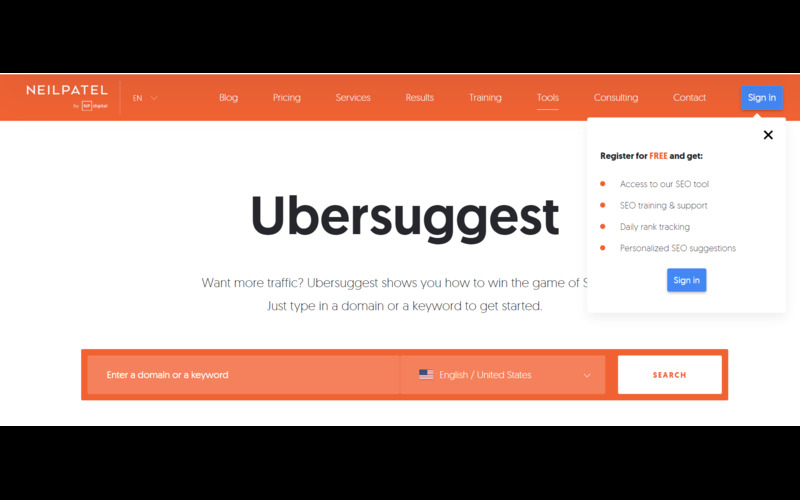
Overview: Ubersuggest, created by digital marketing guru Neil Patel, offers keyword suggestions, SERP analysis, and more.
Key Features:
- Keyword suggestions
- Content ideas
- Competitive analysis
Pros:
- Simple and user-friendly
- Free version available
Cons:
- Limited features in the free version
- Not as comprehensive as some other tools
Ideal User Profile: Beginners and small businesses looking for a straightforward, budget-friendly option.
Tool #6: KWFinder
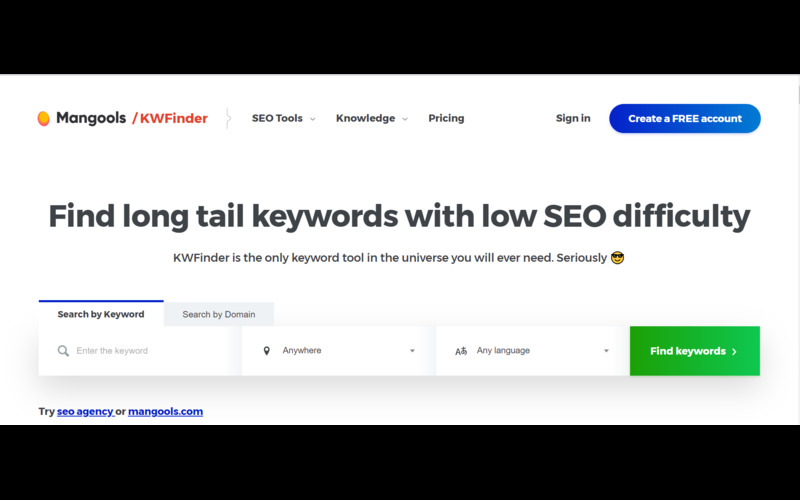
Overview: KWFinder specializes in finding long-tail keywords with lower competition, perfect for niche markets.
Key Features:
- Long-tail keyword research
- Search volume and trend data
- SERP analysis
Pros:
- Great for finding niche keywords
- User-friendly interface
Cons:
- Limited broader SEO features
- Data might be less extensive than larger tools
Ideal User Profile: Bloggers, small businesses, and anyone focusing on niche markets.
Tool #7: SpyFu
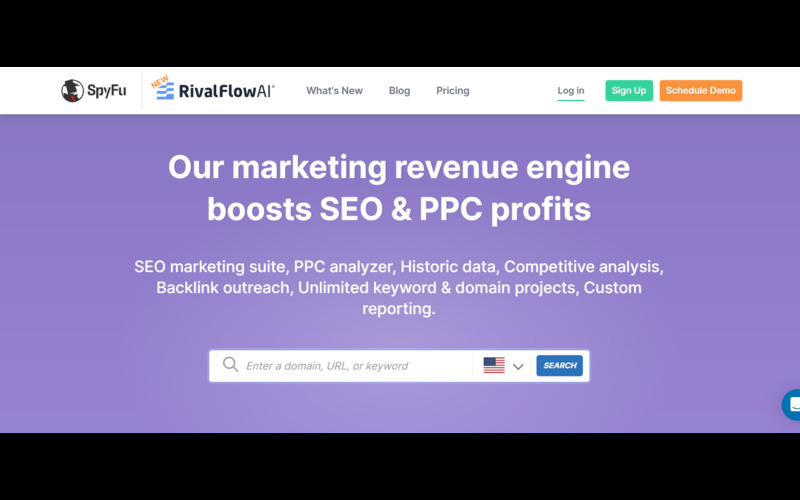
Overview: SpyFu is unique in its focus on competitor keyword research, allowing users to see what competitors are ranking for.
Key Features:
- Competitor keyword tracking
- PPC competitor research
- Historical data
Pros:
- Excellent for competitive analysis
- User-friendly
Cons:
- Limited in terms of global data
- More focused on PPC than organic SEO
Ideal User Profile: Marketers and businesses focused on competitive intelligence and PPC campaigns.
Tool #8: SERPstat 🌐

SERPstat stands out in the world of keyword research tools for its multifaceted approach. It’s not just a keyword research tool; it’s a comprehensive suite for SEO, PPC, and content marketing.
Key Features:
- SERPstat excels in providing detailed keyword trends and search analytics.
- Its website analysis feature allows a deep dive into competitors’ strategies.
- A unique selling point is its ability to track historical data for keywords and domains.
Pros:
- Comprehensive keyword data and competitor analysis.
- User-friendly interface.
- Offers a free version with basic features.
Cons:
- Advanced features can be overwhelming for beginners.
- Some users report occasional inaccuracies in search volume data.
Ideal User Profile:
- SEO professionals and marketers seeking a tool that offers both keyword research and competitive analysis.
Tool #9: Long Tail Pro 🎯
Long Tail Pro is a favorite for those targeting long-tail keywords. It’s especially beneficial for niche markets or businesses aiming to rank for specific, less competitive phrases.
Key Features:
- Focuses on finding high-converting, low-competition long-tail keywords.
- Provides a keyword competitiveness score, making it easier to identify viable keywords.
- Allows for bulk keyword analysis, which is a time-saver.
Pros:
- Excellent for niche market targeting.
- User-friendly for beginners.
- Integrates easily with other SEO tools.
Cons:
- Not as comprehensive as some other tools for broader keyword strategies.
- The pricing can be a bit steep for small businesses or solo bloggers.
Ideal User Profile:
- Bloggers, small business owners, and niche marketers.
Tool #10: Keywords Everywhere 🗝️

Keywords Everywhere is a browser add-on that simplifies keyword research by integrating data directly into search results pages.
Key Features:
- Provides keyword data on search engines and e-commerce websites.
- Offers insights like search volume, CPC, and competition data.
- Can see related keywords and long-tail phrases on the go.
Pros:
- Extremely convenient and easy to use.
- Offers a pay-as-you-go model, which is cost-effective.
- Works across multiple websites, including Google, YouTube, and Amazon.
Cons:
- Limited in-depth analysis capabilities.
- Requires an internet connection to function.
Ideal User Profile:
- SEO beginners and content creators who prefer on-the-go research.
Comparative Analysis 📊
To help you choose the right tool, let’s dive into a comparative analysis. [Here, a detailed chart or table can be included for visual comparison, comparing features, pricing, and user-friendliness of each tool.]
Real-World Applications and Success Stories 🌟
Numerous case studies and testimonials showcase the effectiveness of these tools. For instance, a small e-commerce site might share how Long Tail Pro helped them rank for niche products, while a large corporation could attribute part of their online visibility success to SEMrush. These stories illustrate how proper keyword research can lead to significant SEO triumphs.
The Future of Keyword Research Tools 🔮
Keyword research tools are evolving, with AI and machine learning playing larger roles. We can expect more predictive analytics, user intent understanding, and even integration with voice search optimization. Staying adaptable means keeping an eye on these trends and continuously learning.
Final Thoughts and Recommendations 💡
In summary, the right keyword research tool depends on your specific needs, goals, and level of expertise. Whether it’s the comprehensive data of Ahrefs or the user-friendly approach of Ubersuggest, each tool has its unique strengths.
Now, it’s your turn! Explore these tools, see which aligns with your needs, and don’t hesitate to experiment. We’d love to hear your experiences and any questions you might have in the comments section below. Happy researching! 🚀






Pingback: The 5 Best SEO Tools for Beginners to Boost Website Traffic: Essential Solutions for Online Success - Online Money Trendz
Pingback: Top 10 Tools for Starting a Profitable Online Business: Essential Resources for Entrepreneurs - Online Money Trendz